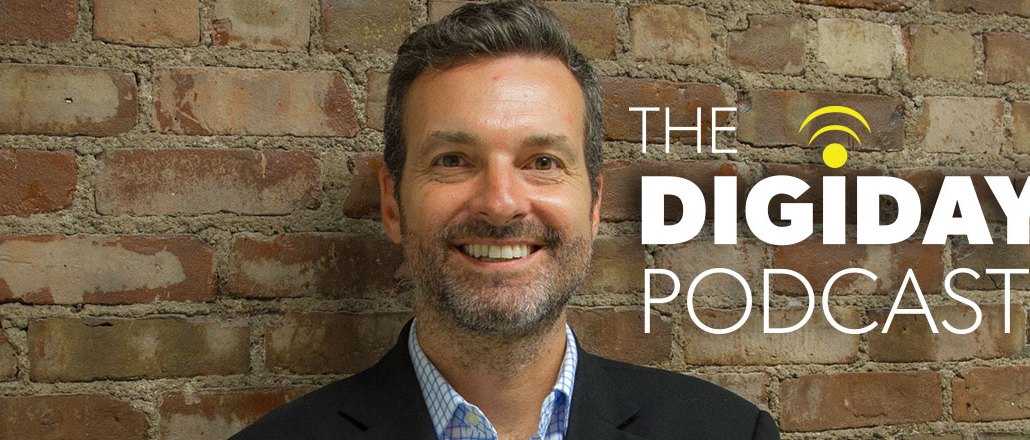Save 50% on a 3-month Digiday+ membership. Ends Dec 5.

Subscribe: iTunes | Stitcher | RSS
The article of faith underpinning much of advertising technology is the idea that data can be collected to “improve” advertising by making it more relevant. Dog owners will see dog food ads, cat owners will get cat food. But David Carroll, an associate professor of media design at The New School’s Parsons, believes this has never come to fruition. Quite the opposite is true.
“Subjectively speaking, it seems like advertising online is almost ruined,” said Carroll. “We don’t see advertising that people want anymore. The idea that technology was good for advertising doesn’t seem to have played out.”
Carroll’s been outspoken on several issues around the consolidation of power in Google and Facebook, as well as the perverse incentives in digital media that has led, in his eyes, to the rise of ad blocking.
“We see evidence of Facebook censoring media, so it’s not the same as an open web,” he said. “We see instances of Google’s algorithm affecting access to information. When you grant gatekeepers this kind of power, we are limiting the ability of a professional organization to inform the public.”
Here are some highlights from the episode, edited for clarity.
Ad position: web_incontent_pos1
Facebook and Google are all-powerful
Facebook and Google undeniably have a lot of power in digital media. But both companies point out that consumers can easily choose other options. Carroll believes that isn’t practically the case.
“It’s becoming really difficult to not use Facebook,” he said. “It’s becoming an essential part of functioning in society, to have a Facebook account. You’re expected to maintain one. This general expectation makes it really difficult to opt out of that. With Google, many people have Google at work so they have to be on Google. And the minute you send someone an email on Gmail, all of your participation is on Google. I don’t know if that idea that you can just not use it and still function in society is possible.”
Facebook and Google need opposition
Every person and entity in a position of power needs checks on that power — often for their own good. It’s no different in digital media, where Google and Facebook control well over half of the ad market and each boast well over 1 billion users. That can come in many forms, from users signaling their unease in various ways to industry groups and the government.
“There needs to be active, countervailing forces to be critical of the,” Carroll said. “They need us to be critical of them.”
Ad blocking is “only going to get worse”
The industry’s inability to provide an easy way to opt out of what Carroll calls “surveillance marketing” is to blame for the rise of ad tech, he believes. While some quibble with the numbers of ad-blocker users, there’s little doubt that they skew young, which makes Caroll believe the problem is “only going to get worse.”
Ad position: web_incontent_pos2
“When consumers push back, it’s a sign to the industry that it’s overdoing it,” he said. “It needs to make fewer, more valuable [ad] opportunities — and this idea that people must accept it is based on a fallacy.”
More in Media

What publishers are wishing for this holiday season: End AI scraping and determine AI-powered audience value
Publishers want a fair, structured, regulated AI environment and they also want to define what the next decade of audience metrics looks like.

Digiday+ Research Subscription Index 2025: Subscription strategies from Bloomberg, The New York Times, Vox and others
Digiday’s third annual Subscription Index examines and measures publishers’ subscription strategies to identify common approaches and key tactics among Bloomberg, The New York Times, Vox and others.

From lawsuits to lobbying: How publishers are fighting AI
We may be closing out 2025, but publishers aren’t retreating from the battle of AI search — some are escalating it, and they expect the fight to stretch deep into 2026.
Ad position: web_bfu